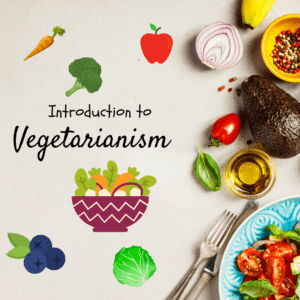In health and wellness, vegetarianism is more than just a trend; it’s a lifestyle choice that has been embraced for centuries. With a notable rise in popularity over recent decades, this dietary approach is acclaimed for its health benefits and positive impact on the environment.
This guide explores the key characteristic of a vegetarian diet, addresses common concerns, and offers practical tips for those considering making the switch.
1. Introduction to Vegetarianism
 Introduction to Vegetarianism
Introduction to Vegetarianism
Vegetarianism dates back to ancient civilizations but has seen a resurgence in modern times as more people become aware of its health and environmental benefits. Studies indicate that vegetarianism can lower the risks of chronic diseases, including heart disease, diabetes, and cancer, while also contributing to environmental sustainability by reducing the demand for meat production.
Read More: Is Salad Dressing Homogeneous or Heterogeneous?
2. Characteristics of a Balanced Vegetarian Diet
A balanced vegetarian diet is rich in nutrient-dense foods, including fruits, vegetables, whole grains, nuts, seeds, and legumes. These food groups provide essential vitamins, minerals, antioxidants, and fiber, foundational for good health. Diversifying meals is crucial to meeting all nutritional needs, offering various flavors and textures to keep the diet exciting and satisfying.
a. Addressing Common Concerns
- Protein Sources for Vegetarian Diets: Contrary to popular belief, vegetarians have ample protein sources, including lentils, chickpeas, tofu, tempeh, and quinoa. These foods can quickly meet and exceed daily protein requirements.
- Managing Iron and Vitamin B12 Intake: Iron can be found in plant foods like spinach, beans, and fortified cereals. Vitamin B12, though primarily found in animal products, can be obtained through fortified foods and supplements, ensuring vegetarians can achieve optimal intake.
3. Exploring Vegetarian Lifestyle Variations
Vegetarianism encompasses various diets that cater to individual needs and preferences, including:
- Lacto-ovo vegetarianism: Includes dairy products and eggs but excludes meat, poultry, and fish.
- Veganism: Excludes all animal products, relying solely on plant-based foods.
- Plant-based diets: Focus primarily on plant-derived foods, with minimal to no animal products.
These variations allow individuals to personalize their approach to vegetarianism, making it adaptable and enjoyable.
Read More: The Surprising Truth About the Most Calorie Dense Macronutrient
4. Practical Tips for Transitioning to a Vegetarian Diet
Depending on personal preference, transitioning to a vegetarian diet can be a gradual or immediate change. Essential pantry items include a variety of grains, legumes, nuts, seeds, and fruits and vegetables. Learning basic cooking techniques and experimenting with new recipes can make the transition smoother and more enjoyable.
5. The Role of a Vegetarian Diet in Health and Wellness
Research consistently shows the health benefits of a vegetarian diet, including weight management, improved heart health, and a lower risk of certain chronic diseases. Nutrition experts advocate for vegetarianism not just as a diet but as a holistic approach to a healthier lifestyle.
“Adopting a vegetarian diet can dramatically improve your health, energy levels, and overall wellbeing,” says Dr. Samantha Brody, a renowned nutrition expert. “It’s about making informed choices that benefit both your body and the planet.”
6. Types of Vegetarian Diets
Vegetarian diets come in several forms, each catering to individuals’ ethical, health, and dietary preferences. Whether one chooses lacto-ovo vegetarianism for its inclusion of eggs and dairy, veganism for a diet free of all animal products, or opts for a more flexibly defined plant-based diet, the key is ensuring nutritional balance and diversity.
Vegetarians need to plan their meals thoughtfully to cover all dietary bases. Incorporating a variety of whole foods to meet their needs for protein, iron, calcium, vitamin B12, and omega-3 fatty acids that supports the immune system and individual health and wellness. Thus aligning personal health goals with broader environmental concerns.
Read More: What Information Should be Considered When Making Smart Food Choices
7. Meeting nutritional needs on a vegetarian diet
Meeting nutritional needs on a vegetarian diet requires careful consideration and planning with a well-rounded nutritious eating plan. A common misconception is that vegetarian diets are deficient in specific nutrients, but with a thoughtful selection of foods, vegetarians can obtain all essential vitamins and minerals.
Essential nutrients to focus on include protein, iron, calcium, vitamin B12, and omega-3 fatty acids:
- Protein is crucial for muscle repair, immune function, and overall cellular health. Vegetarians can find good sources of plant based proteins sources in legumes, such as beans, lentils, and chickpeas, as well as in tofu, tempeh, edamame, and dairy products for those who include them.
- Iron is abundant in plant-based sources like lentils, beans, fortified cereals, dark leafy greens, and dried fruits. Iron-rich foods with vitamin C (such as citrus fruits, strawberries, or bell peppers) can enhance iron absorption.
- Calcium is vital for bone health and can be found in fortified plant milk and juices, tofu made with calcium sulfate, and green leafy vegetables like kale and collard greens.
- Vitamin B12 is necessary for nerve function and DNA and red blood cell production. It can be more challenging to obtain in a vegetarian diet, but it is available in fortified foods (such as plant milk, breakfast cereals, and nutritional yeast) and supplements.
- Omega-3 fatty acids support brain health and can be sourced from flaxseeds, chia seeds, hemp seeds, walnuts, and algae-based supplements.
8. Delicious Vegan Recipes to Kickstart Your Plant-Based Journey
Transitioning to a vegan diet doesn’t mean sacrificing flavor or variety. Here are five delectable vegan recipes that will delight your taste buds and bring diversity to your meals.
a. Classic Vegan Chili
This hearty, protein-packed dish is perfect for any day of the week. Combine cooked black beans, kidney beans, and lentils in a large pot with sautéed onions, garlic, diced tomatoes, and corn. Season with chili powder, cumin, salt, and pepper to taste. Simmer for an hour, allowing the flavors to meld together beautifully.
b. Vegan Buddha Bowl
This nutrient-dense bowl is as colorful as it is flavorful. Start with a base of quinoa or brown rice. Top with roasted sweet potatoes, steamed kale, avocado slices, and chickpeas. Drizzle with a tahini-lemon dressing for a creamy, tangy finish.
c. Vegan Banana Pancakes
Begin your morning with these fluffy and delightful pancakes. For sweetness, mix ripe bananas with almond milk, vanilla extract, and maple syrup. Incorporate whole wheat flour, baking powder, and a pinch of salt. Cook on a non-stick pan until golden brown. Serve with fresh berries and a drizzle of maple syrup.
d. Creamy Vegan Alfredo Pasta
This luxurious pasta dish uses soaked cashews blended into a smooth sauce with garlic, nutritional yeast, lemon juice, and almond milk. Combine with sautéed mushrooms and spinach, then toss with your favorite pasta for a creamy, satisfying meal.
e. Vegan Tacos with Mango Salsa
Prepare a feast of tacos using lentils or black beans as the filling, seasoned with taco spices. Mix diced mango with red onion, cilantro, jalapeño, and lime juice for the mango salsa. Serve in corn tortillas and garnish with avocado slices for a fresh and zesty meal.
These recipes demonstrate the versatility and deliciousness of vegan cuisine, making your transition to a plant-based diet exciting and delightful.
9. Conclusion
As we draw the curtains on our exploration of the characteristic of a vegetarian diet, one thing becomes abundantly clear – its versatility and vibrancy. By understanding its characteristics and how to plan meals effectively, individuals can enjoy the benefits of vegetarianism while indulging in delicious, diverse dishes. Exploring vegetarianism can be rewarding and life-enhancing, whether for health reasons, ethical considerations, or environmental concerns.
